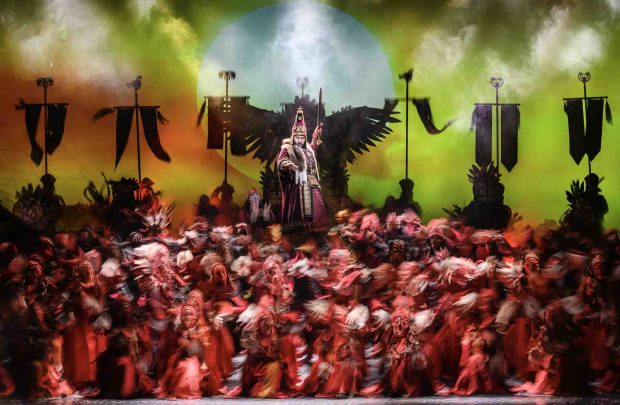Decentralized finance has expanded significantly in the previous three years. ‘Decentralized finance,’ often known as ‘DeFi,’ is a hot topic these days. They don’t require individuals like bankers or attorneys to make them. Instead, they make use of the blockchain technology found on the internet. As of September 2017 through September 2018, the value of all defi exchange development contracts has risen. There was a rise from $2.1 million to $6.6 billion. Since the beginning of August, when it was $1.4 billion, this figure has increased by $2.9 billion.
As a result, the value of all the defi smart contract development tradeable tokens has increased significantly. In the previous month, it has nearly quadrupled to about $15 billion. The value of many tokens has tripled, quadrupled, or even quadrupled in the last year, but not all of them. The Synthetix Network Token has increased by a factor of 20 while the Aave token has increased by a factor of almost 200. As a result, if you bought Aave tokens in August of this year for £1000, they would be worth almost £200,000 today.
DeFi grew because authorities took their time to intervene. The lender and the borrower must know each other’s names in conventional unsecured lending, for example, and the lender must ensure the borrower can repay the money. These things do not occur in defi staking development . Is this site a place of trust and privacy?
Regulators must examine the risk of putting money in unregulated institutions. If banks and other financial institutions don’t make enough money, they might lose their roles as middlemen. However, it makes more sense to accept rather than resist the changes that are going place. In July, the US Securities and Exchange Commission (SEC) certified an ethereum fund named Arca, making it the first ethereum fund to be licensed by SEC regulations.
In addition, when people participate in everyday activities, they are fostering growth. There are a few of high-street banks that have already accepted DeFi and others are considering doing so. A organization called the Interbank Information Network is exploring the use of blockchain technology in order to speed up the transfer of funds between financial institutions. JP Morgan, ANZ, and the Royal Bank of Canada lead a consortium of banks in leadership of the organization.
It will be possible to conduct financial transactions in the future by typing them in on a keyboard.
In order to take advantage of defi development services explosive growth, a large number of people are purchasing DeFi tokens. In reality, a large number of the tokens are worthless or almost so, which causes unwarranted enthusiasm.
That money is becoming more liberal and decentralized is good or harmful, depending on one’s point of view. The most challenging part is keeping track of its rapid expansion while maintaining a system of checks and balances. For the sake of minimizing risk while maximizing gain, follow these steps. For the foreseeable future, that will be the key battle.
The problem with centralized finance
It’s possible for centralized financial systems to go horribly wrong. In a document referred to as a white paper Bitcoin: A Peer-to-Peer Electronic Cash System was written by Satoshi Nakamoto in October 2008.
Nakamoto penned the entire thing, which was nine pages long. As long as it is known that he began working on Bitcoin in late 2006 and began creating code in May 2007, it does not matter when the white paper was prepared. It was only by pure luck that Nakamoto’s white paper was released, even though he came up with Bitcoin before the financial crisis of 2008. Several large banks went insolvent in 2008, and several of them were purchased by the government to prevent a full-blown economic collapse.
The dangers of having centralized intermediaries become apparent during a crisis. Credit card firms and other centralized intermediaries like banks fail when they lose their authority. Only $100,000 of the money held by failing institutions is saved by the Federal Deposit Insurance Corporation (FDIC).
Centralized financial systems have the ability to deflationarily raise the value of the dollar.
Since the global financial crisis of 2008, central banks all over the globe have been addicted to quantitative easing. (QE). A poor economy might benefit from an increase in global money supply by central banks. “Money creation” and “QE” are not the same thing. There are two types of assets that central banks buy: private and public sector securities, such as bonds. The private sector benefits from the money while the government is able to spend more. Inflation was not expected to appear until 2021 in the United States, but that has since occurred.
United States economic performance has been the world’s greatest since 1945. Think that this type of economic dominance would remain forever is naïve. The value of the US dollar is almost expected to diminish during the next century. There is no country or currency that lasts forever.
Money has a lengthy history of being depreciated, being devalued, and being meaningless.
The third problem regarding centralized financial systems is that they might be confiscatory or discriminatory.
Westerners, too, don’t think much about banks. Across 1.6 billion individuals around the world are “unbanked,” which means they don’t have access to a bank or other financial institution. Banking services are not available in a lot of regions. In certain circumstances, governments and financial firms aim to make it hard for citizens to utilize banking services. In 2018, approximately 35 percent of Arab women have a bank account. In 2014, just 7 percent of all bank accounts in Iraq were owned by women. Most of the blame may lay on patriarchal cultural standards that hinder women from being financially independent. Those who are the same sex as each other are 73 percent more likely to be turned down for a mortgage than people who are the same sex as each other. People who are the same sex as each other pay 0.02 percent to 0.2 percent extra in interest and fees (Lending to same-sex borrowers, Hua Sun and Lei Gao) (Lending to same-sex borrowers, Hua Sun and Lei Gao)
Bitcoin is believed to be a “censorship-proof digital money.”
Incomplete decentralization
Many people believe that decentralized finance development is a good idea, both in politics and online. People who were once opposed to blockchain are now enthusiastic supporters. Decentralization, which is widely used as a technical term, appears to be more of a rhetorical device for drawing emphasis to some parts of a proposed social organization while neglecting others. It’s going to take a lot more than people think or say. Uncertainty has brought people from all walks of life to work together to achieve both political and technical objectives. An organization may look decentralized, but this does not always mean that it is.
However, decentralized finance development rhetoric hides other aspects of the restructuring it represents. It serves as a distraction from discussions about the proper use of power and delays the need for more serious debates. Decentralization must be quite specific if it is to be useful for future social structures and technological systems. No centralized or accountability measures can be substituted with this approach.








